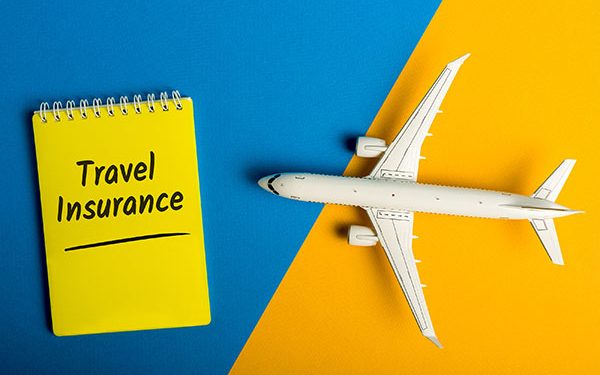Traveling is a favourite pastime among Singaporeans, despite our love of wanderlust, many of us tend to overlook travel insurance.
Travel insurance is often overlooked by many Singaporeans, as few make the effort to purchase it in advance. Fewer still compare policies to find the most suitable one for their needs. If you are planning to buy travel insurance in Singapore, here is everything you should look out for before making your decision:
1. What does travel insurance cover for you?
It is important to select a travel insurance policy that covers you for a wide range of situations, from the smallest inconveniences to the most severe.
As a matter of fact, I would advise you not to put yourself in a position where you would not be covered. The inconvenience could be as minor as having your luggage delayed and having to spend at least one night in the same clothes you wore on the whole flight in case your luggage is delayed. It could also be a medical emergency that requires immediate attention. For example, getting stung badly by a bee on a remote island adventure and needing medical attention immediately.
Almost all travel insurance in Singapore these days automatically includes Covid-19 coverage as part of the package. This means that if you get Covid-19 while on your travels, you will be able to claim it from your travel insurance. Allianz Travel Insurance has it at a discounted rate of $21.60 after the discount.
In addition, it is important to make sure that you have coverage for everything from lost and delayed luggage, flight delays, and cancellations to medical treatment, medical evacuation, and even repatriation in the event of death or serious illness. The claim limits for each of these different situations are, of course, different.
There are also a few other things that travel insurance can cover. These include reimbursing deposits if your travel agent falls out of business, or if your credit card is used fraudulently overseas. It is possible for some policies to pay you if you are kidnapped while you are abroad! Moreover, the best part about buying travel insurance is that it is relatively cheap and convenient to do so.
2. Insurance for travel – how to choose the right one
When there are so many different benefits to be found in a travel insurance plan, it can be difficult to determine if a particular plan is worth the money you’re paying for it. For common travel hiccups, it is important to check in advance about how much you can expect to be reimbursed.
You should find a travel insurance company that covers flight delays and cancellations: There is a high possibility of flight delays occurring more often than you think. It can be extremely inconvenient for you if this happens, especially if it ends up causing you to miss your connecting flight as a result. Make sure that your policy covers you for a reasonable amount of time so that you are covered in the future. For instance, if your flight is delayed for six consecutive hours, some policies will pay you $100 if you are delayed for six consecutive hours. As a general rule, there is usually a cap of $200-$500 for travel delay insurance.
It is very important to make sure that your policy covers you well in the event of lost or delayed baggage. Several policies provide benefits if your baggage is delayed for six consecutive hours, including Bubblegum Travel Insurance, which will reimburse you $100 per hour. The two policies also cover lost or damaged baggage up to a maximum of $3,000. Don’t forget to pay attention to the maximum amount you’re insured for.
There is no such thing as predicting what might happen on your trip so it is always a better idea to be safe than sorry when it comes to medical coverage overseas. A good travel insurance policy should cover you for at least $200,000 in overseas medical coverage, as well as unlimited coverage for emergency medical evacuation and repatriation in the event of an emergency medical emergency. The Starr TraveLead Insurance policy is one of the policies that fit the bill in terms of coverage.
If you are looking for travel insurance that covers Covid-19 expenses, your policy should be able to cover a range of expenses that you may encounter during your travels (and even before you fly!). It is very important to check whether the travel insurance policy covers cancellations and postponements of trips, as well as medical expenses resulting from Covid-19. An added bonus is the ability to receive a cash allowance while in quarantine abroad. Suppose you are quarantined overseas due to Covid-19, for example, AIG Travel Guard® Direct – Enhanced covers you for $100 per day for 14 days in the event that you are quarantined.
3. Travel insurance prices in Singapore
Buying travel insurance in Singapore is considered to be a very price-sensitive activity and sometimes insurers are competing to decrease the premiums of their policies by even a dollar, in order to make them more appealing.
If you want to find a lower-cost plan, one of the ways to do this is to check which insurance companies offer regional travel insurance. As an example, if you are planning to travel solely to Thailand, it is usually cheaper to get a policy that covers only the countries of the SEA or Asean region, rather than a policy that covers all the countries of the world.
Despite this, price is not the only factor to consider-especially since cheap insurance policies tend to have significantly lower coverage than their premiums.
When it comes to buying travel insurance, it is important to remember not only the cost of the policy but other elements as well. As well as considering the amount of coverage you are eligible for, and the speed at which your claims will be processed, there are a few other factors to consider, as well. As soon as you have decided to file a claim, remember to avoid waiting until the next blue moon before you are able to see the results of your claim, especially if you are planning to file a claim this year.
4. Travel insurance in Singapore: which one?
In the same way that any other purchase you make, the best travel insurance is the one that provides the most value for your money. Imagine, for example, that you are only traveling to Malaysia for a weekend shopping trip and have nothing else planned.
As a frequent traveler, you are probably traveling light and do not need as much coverage for loss of luggage as $3,000, even if you can pay just $3 more for significantly more protection. Make the most of that $3 and treat yourself to all the Teh Tarik you can consume!
It is important not to be too stingy and buy only the cheapest products as we discussed earlier. In terms of claims, the cheapest insurance may come with quite a few terms and conditions attached to it.
It is possible, for example, that an insurer would not cover delayed luggage if the luggage has only been delayed when returning to Singapore. Even so, if this is the only inconvenience you face on your entire trip, you might be understandably upset that you cannot claim for it since it is the only inconvenience you are experiencing.
You should read the terms and conditions of your preferred insurance policy carefully so that you do not fall victim to any surprises later on. When it comes to pre-existing medical conditions, this is of particular importance.
5. Common Travel insurance mistakes
What’s the best way to buy travel insurance that meets our needs? Travel insurance mistakes to avoid:
Buying the most convenient travel insurance: Do you just buy the first policy you see on Google? Ensure that the coverage provided is adequate for your needs or covers the risks of your destination, e.g. personal belongings and medical coverage.
Buying travel insurance at the last minute: Do you often buy your travel insurance while waiting to board your flight? Better late than never. You should be aware that some of the benefits of travel insurance are only applicable if you buy it in advance.
Buying travel insurance for only the days you are overseas: Should you purchase travel insurance only for those days? No. Include flights to and from your holiday destination. In the event of baggage delays, loss or damage, or overbooking of flights, you can make a claim. Do take into account the +1 or +2 days that it takes your flight to reach Singapore for long-haul trips.
Reading your travel insurance policy: Not all travel insurances are the same. Check your policy document for what’s included and excluded, claim limits, and how to make a claim.
Travel insurance is a one-size-fits-all proposition: Be sure that the travel insurance you are considering covers adventurous activities such as skydiving and scuba diving. MSIG TravelEasy Elite covers sky diving, hot air balloon rides, and bungee jumping. In alternative, check whether adventurous activities are included.
6. Travel insurance and pre-existing conditions?
One of the biggest travel insurance stories in 2017 was when a Singaporean man suffered a heart attack in Tokyo. Bringing him back to Singapore via medical evacuation would cost another $120,000.
He was denied a claim since his insurer considered his heart failure a preexisting condition. One insurer that covers pre-existing conditions is NTUC Income.
7. When should I buy travel insurance?
There are many things that can go wrong when you travel. Before you leave the country, half of these things could happen!
Buying travel insurance on the day you travel (or worse, after you’ve already crossed into international waters) puts you at risk for travel inconveniences big and small.
It also covers you in the event of an unexpected cancellation.
Once you’ve planned your trip, buy travel insurance online. The early purchase of a travel policy does not make you kiasu. Makes you smart.
Your goal is to maximize the policy’s coverage. The travel agency you’re booking with may close a week before your travel if you haven’t bought a policy yet. The same goes for flight delays and flight cancellations.
There is no penalty for buying travel insurance earlier, except maybe missing out on promotions around travel season. What’s the point of saving a few dollars and losing hundreds due to cancelled flights?

8. Travel insurance for one trip or annual?
It used to make more sense to buy single-trip travel insurance when you left Singapore. In the past, most people only traveled once or twice a year. In this culture of nomadism and remote working while traveling… and long weekends? Travel insurance may actually be more convenient if you buy an annual plan.
Ask yourself if you travel more than three times a year to decide whether to choose a single trip plan or an annual plan. Weekend getaways aren’t all we’re talking about!
An annual plan definitely makes more sense to your wallet, whether you’re just crossing the Causeway or traveling abroad.
It might be worthwhile to consider travel insurance based on how often and how far you travel.
Buying an annual policy saves you money, and you won’t have to buy insurance every time you fly overseas. You should still compare the various policies before you commit, just as you would for single-trip travel insurance.
Annual travel insurance offers a flat rate and covers your entire year. It costs about $200-$300 a year, so only buy it if you travel frequently. Traveling overseas more than seven or eight times a year, at least, makes sense.
9. Is it worth comparing travel insurance?
By comparing travel insurance policies, you can choose the policy that best suits your needs. A glance at coverage levels for medical costs, lost, delayed, and damaged baggage will help you determine what policies have to offer.
Comparing travel insurance in Singapore reveals that the cheapest policy, however, may not be the most effective. Usually, cheaper policies provide less coverage. Loss luggage coverage isn’t necessary if you’re only bringing the bare minimum to a Bangkok staycation.
(Credits: Bigstock, SMU)
Are you looking for some ideas? Join our Travel Channel on Telegram now!
Since you’re here, why not read:
Make Your Trip Suitcase Stylish With Carry-On Luggage that is also Durable



























